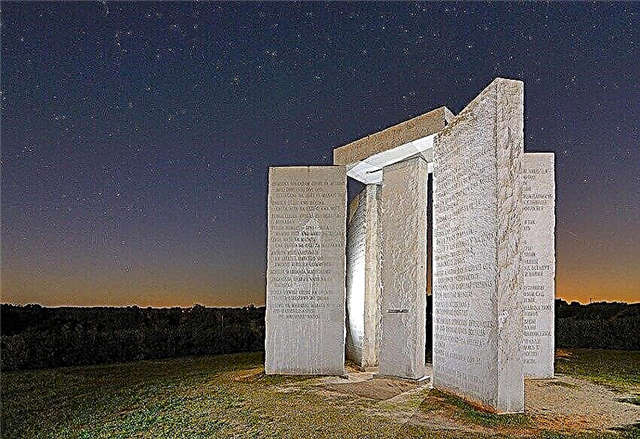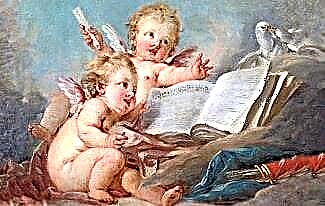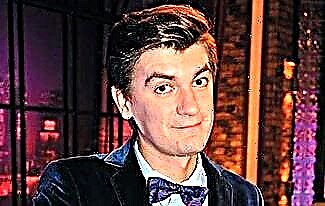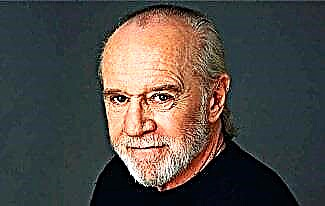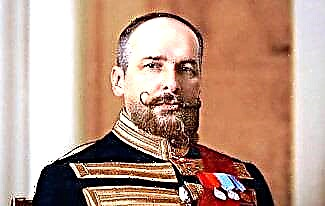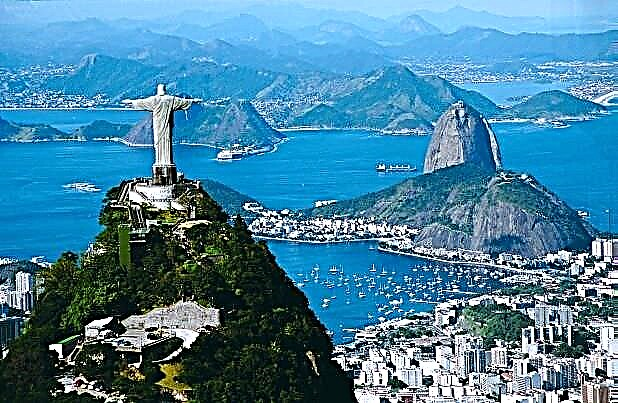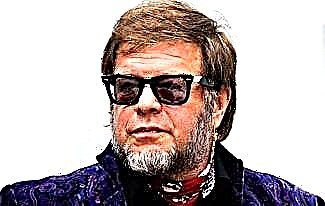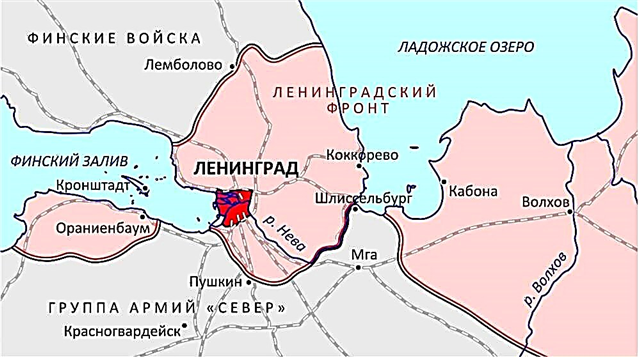Romain Rolland (1866-1944) - French writer, prose writer, essayist, public figure, playwright and musicologist. Foreign honorary member of the USSR Academy of Sciences.
Laureate of the Nobel Prize in Literature (1915): "For the high idealism of literary works, for sympathy and love for truth."

There are many interesting facts in the biography of Romain Rolland, which we will tell about in this article.
So, before you is a short biography of Rolland.
Biography of Romain Rolland
Romain Rolland was born on January 29, 1866 in the French commune of Clamecy. He grew up and was brought up in the family of a notary. From his mother he inherited a passion for music.
At an early age, Romain learned to play the piano. It is worth noting that in the future, many of his works will be devoted to musical themes. When he was about 15 years old, he and his parents moved to live in Paris.
In the capital, Rolland entered the Lyceum, and then continued his education at the Ecole Normal High School. After completing his studies, the guy went to Italy, where for 2 years he studied the visual arts, along with the work of famous Italian musicians.
An interesting fact is that in this country Romain Rolland met the philosopher Friedrich Nietzsche. Upon returning home, he defended his dissertation on the topic “The origin of the modern opera house. The history of opera in Europe before Lully and Scarlatti. "
As a result, Rolland was awarded the degree of professor of music history, which allowed him to lecture at universities.
Books
Romain made his literary debut as a playwright, writing the play "Orsino" in 1891. He soon published the plays "Empedocles", "Baglioni" and "Niobe", which belonged to ancient times. An interesting fact is that none of these works were published during the writer's lifetime.
Rolland's first published work was the tragedy "Saint Louis", published in 1897. This work, together with the dramas "Aert" and "The Time Will Come", will form the cycle "Tragedies of Faith".

In 1902, Romain published a collection of essays "People's Theater", where he presented his views on theatrical art. It is curious that he criticized the work of such great writers as Shakespeare, Moliere, Schiller and Goethe.
According to Romain Rolland, these classics did not so much pursue the interests of the broad masses as they sought to entertain the elite. In turn, he wrote a number of works that reflected the revolutionary spirit of ordinary people and the desire to change the world for the better.
Rolland was poorly remembered by the public as a playwright, because in his works there was inappropriate heroism. For this reason, he decided to concentrate on the biography genre.
From the pen of the writer came out the first major work "The Life of Beethoven", which, along with the biographies "The Life of Michelangelo" and "The Life of Tolstoy" (1911), compiled a series - "Heroic Lives". With his collection, he showed the reader that modern heroes are now not military leaders or politicians, but artists.
According to Romain Rolland, creative people suffer much more than ordinary people. They have to confront loneliness, misunderstanding, poverty and disease for the pleasure of gaining recognition from the public.
During the First World War (1914-1918), the man was a member of various European pacifist organizations. At the same time, he worked hard on a novel called Jean-Christophe, which he wrote for 8 years.
It was thanks to this work that Rolland was awarded the Nobel Prize in Literature in 1915. The hero of the novel was a German musician who overcame many trials on his way and tried to find worldly wisdom. It is interesting that Beethoven and Romain Rolland himself were the prototypes of the main character.

“When you see a man, you wonder if he is a novel or a poem? It always seemed to me that Jean-Christophe flows like a river. " On the basis of this idea, he created the genre "novel-river", which was assigned to "Jean-Christophe", and later to "The Enchanted Soul".
At the height of the war, Rolland published a couple of anti-war collections - "Above the Battle" and "Forerunner", where he criticized any manifestation of military aggression. He was a supporter of the ideas of Mahatma Gandhi, who preached love among people and strove for peace.
In 1924, the writer finished working on the biography of Gandhi, and after about 6 years he was able to get to know the famous Indian.
Romain had a positive attitude towards the October Revolution of 1917, despite the subsequent repression and the established regime. In addition, he spoke of Joseph Stalin as the greatest man of our time.
In 1935, the prose writer visited the USSR at the invitation of Maxim Gorky, where he was able to meet and talk with Stalin. According to the memoirs of contemporaries, men talked about war and peace, as well as about the reasons for repression.
In 1939, Romain presented the play Robespierre, with which he summed up the revolutionary theme. Here he reflected on the consequences of the terror, realizing all the inexpediency of revolutions. Occupied at the beginning of World War II (1939-1945), he continued to work on autobiographical works.
A few months before his death, Rolland published his last work, Pegy. After the death of the writer, his memoirs were published, where his love for humanity was clearly traced.
Personal life
With his first wife, Clotilde Breal, Romain lived for 9 years. The couple decided to leave in 1901.
In 1923, Rolland received a letter from Marie Cuvillier, in which the young poet was giving her review of the novel Jean-Christophe. An active correspondence began between the young people, which helped them develop mutual feelings for each other.

As a result, in 1934 Romain and Maria became husband and wife. It is worth noting that no children were born in this fight.
The girl was a true friend and support for her husband, staying with him until the end of his life. An interesting fact is that after the death of her husband, she lived for another 41 years!
Death
In 1940, the French village of Vezelay, where Rolland lived, was captured by the Nazis. Despite difficult times, he continued to engage in writing. During that period, he completed his memoirs, and also managed to finish the biography of Beethoven.
Romain Rolland died on December 30, 1944 at the age of 78. The cause of his death was progressive tuberculosis.
Photo by Romain Rolland








